Chemistry with a Year Abroad
UCAS code F002
- Study mode
- Full-time
- Duration
- 5 years
- Start date and application deadlines
-
- Start date
UCAS code F002
Do you want to pursue a high-level research career as a professional chemist? This course brings you to the frontiers of chemistry where you will join one of the research teams in the department.
Study Chemistry at Liverpool and learn in a culture of research excellence. Chemistry is a great choice for those with a keen interest in materials chemistry, medicinal chemistry and theoretical and computation chemistry. You’ll thrive in our award-winning undergraduate laboratories. All our chemistry programmes have a common core in the first two years, this provides a good measure of flexibility and choice for you during the first two years. These first two years progress rapidly, with a mix of theory and practical modules to give you a solid grounding in the subject.
During your year abroad, you will gain transferable skills that come with living and adapting to life in a different country; skills that will help with your employability and career prospects.
By year four you will be a proficient chemist, and will be able to extend your knowledge in the three traditional branches of chemistry. You will also be offered a choice of optional chemistry and non-chemistry modules, or modules in science education for those interested in pursuing a career in teaching. Practical modules in year three will continue to develop your skills and knowledge learnt in the first two years. This may involve conducting mini-projects, relevant in the modern world, developing your skill set to make you industry-ready.
In your final year, you will take a range of advanced core modules in inorganic, physical and organic chemistry and can tailor your studies to choose high-level modules in areas that interest you and that are related to our research areas. Chemical research is particularly important in year four and involves you conducting a significant project as a member of one of the research groups in the Department.
Since students enter the Department with a wide range of experience in mathematics (which is essential for studying chemistry to a high level) we provide a flexible tiered maths for chemistry course allowing you to develop your skills at your own pace.
Our MChem programmes have bachelor accreditation from the Royal Society of Chemistry (RSC) ensuring your degree with us will set you on the pathway to a successful career.

The Royal Society of Chemistry is a learned society for chemists in the United Kingdom.

We’re proud to announce we’ve been awarded a Gold rating for educational excellence.
Discover what you'll learn, what you'll study, and how you'll be taught and assessed.
In the first year, you will take modules that cover the fundamentals of inorganic, organic and physical chemistry, plus necessary key skills.
Four chemistry modules combine theoretical and practical aspects and one chemistry module develops quantitative and general key skills. You will spend three to six hours per week in the laboratory and so will receive a comprehensive training in practical aspects of the subject.
You will have the choice of 30 credits of subsidiary modules from subjects which could include the chemistry-biology interface and modules from other departments such as Maths/Physics/Open languages. Please note these modules are subject to change each year.
| Optional modules | Credits |
|---|---|
| FOUNDATIONS OF MEDICINAL CHEMISTRY (CHEM141) | 15 |
| INTRODUCTORY PHYSIOLOGY AND PHARMACOLOGY FOR CHEMISTS (CHEM142) | 15 |
Programme details and modules listed are illustrative only and subject to change.
You will learn more advanced topics within all the main branches of chemistry and continue to develop your quantitative and key skills.
Practical skills will be developed through stand-alone practical modules and you will have the opportunity to spend between six and nine hours per week in the laboratory.
Programme details and modules listed are illustrative only and subject to change.
You are required to spend the year abroad on an approved placement at a European or overseas partner institution.
Programme details and modules listed are illustrative only and subject to change.
The fourth year will concentrate entirely on chemistry, extending your knowledge in the three traditional branches of the subject and the interdisciplinary subject of catalysis.
Importantly, year four will provide you with the opportunity to learn about the application of chemistry to the modern world, in modules that examine the chemistry and chemical processes that are fundamental to the production of pharmaceuticals, polymers / plastics, pigments and novel materials.
The practical modules in this year will be more challenging than those encountered in previous years, involve up to 15 hours laboratory work per week and in some cases will be organised as mini-projects.
Programme details and modules listed are illustrative only and subject to change.
The final year of your programme will be dominated by the chemical research project which accounts for 60 of the 120 credits.
You will choose which branch of chemistry you wish to pursue research in (and usually also which research group you wish to be in), and work throughout the year on original research at the frontiers of chemistry.
You select four of the available optional modules each semester that best reflect your interests.
| Compulsory modules | Credits |
|---|---|
| CHEM480 - CHEMICAL RESEARCH PROJECT (CHEM480) | 60 |
Programme details and modules listed are illustrative only and subject to change.
Laboratory classes in years one and two prepare you for independent laboratory work in years three. In year three you will carry out mini research projects, applying learning in computational modelling and molecular visualisation that are introduced in year one.
You will be able to perform your own calculations to underpin final year research projects.
You are assessed by examination at the end of each semester (January and May/June) and by continuous assessment of laboratory practicals, class tests, workshops, tutorials and assignments.
You have to pass each year of study before you are allowed to progress to the following year. Re-sit opportunities are available in September at the end of years one and two. If you take an industrial placement, a minimum standard of academic performance is required before you are allowed to embark on your placements. All years of study (with the exception of Year One) contribute to the final degree classification.
We have a distinctive approach to education, the Liverpool Curriculum Framework, which focuses on research-connected teaching, active learning, and authentic assessment to ensure our students graduate as digitally fluent and confident global citizens.
The Liverpool Curriculum framework sets out our distinctive approach to education. Our teaching staff support our students to develop academic knowledge, skills, and understanding alongside our graduate attributes:
Our curriculum is characterised by the three Liverpool Hallmarks:
All this is underpinned by our core value of inclusivity and commitment to providing a curriculum that is accessible to all students.
The qualifications and exam results you'll need to apply for this course.
| Qualification | Details |
|---|---|
| A levels |
BBC (including Chemistry: B and ) |
| BTEC Level 3 national extended diploma |
Not Accepted – due to test and time constraints. |
| BTEC combinations |
Not Accepted - due to test and time constraints. |
| Welsh Baccalaureate Advanced |
C in the Welsh Baccalaureate, plus BB at A level to include Chemistry grade B and a science grade B at A level. |
| Access |
Not Accepted - due to test and time constraints. |
Studying with us means you can tailor your degree to suit you. Here's what is available on this course.
University of Liverpool students can choose from an exciting range of study placements at partner universities worldwide.
Immerse yourself in Chinese culture on an optional additional year at Xi'an Jiaotong Liverpool University in stunning Suzhou.
Take a semester of your second year of study at one of our worldwide partner institutions.
Spend a summer abroad on a study placement or research project at one of our worldwide partner institutions.
Every student at The University of Liverpool can study a language as part of, or alongside their degree. You can choose:
Central Teaching Laboratories offer a unique environment for the study of physical sciences. Chemistry occupies the top floor, which houses synthetic chemistry and physical chemistry labs with new equipment for a wide range of experiments.
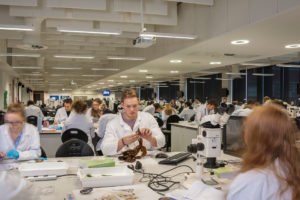
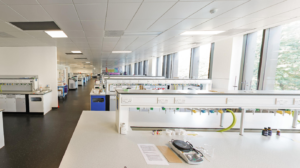
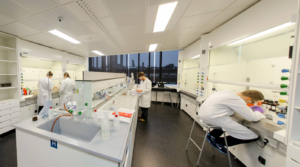
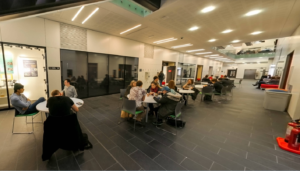
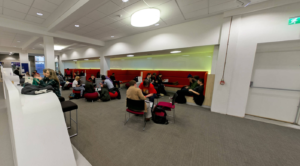

From arrival to alumni, we’re with you all the way:

The research that takes place in the chemistry department here in Liverpool is internationally leading. It makes huge impacts around the world.

Want to find out more about student life?
Chat with our student ambassadors and ask any questions you have.
Our graduates develop a wide range of skills including numeracy, problem solving and IT in addition to scientific skills. Visits to the Department by leading companies such as GlaxoSmithKline and Unilever ensure that you make contact with prospective employers at key stages in your final year.
Typical careers of our graduates include
Recent employers:
4 in 5 chemistry students find their main activity after graduation meaningful.
(Graduate Outcomes, 2018-19.)
Hear what graduates say about their career progression and life after university.

Victoria is graduated from our BSc Chemistry with a year in industry degree in 2020. She received an offer to work as a Global Operations Graduate Associate at AstraZeneca.
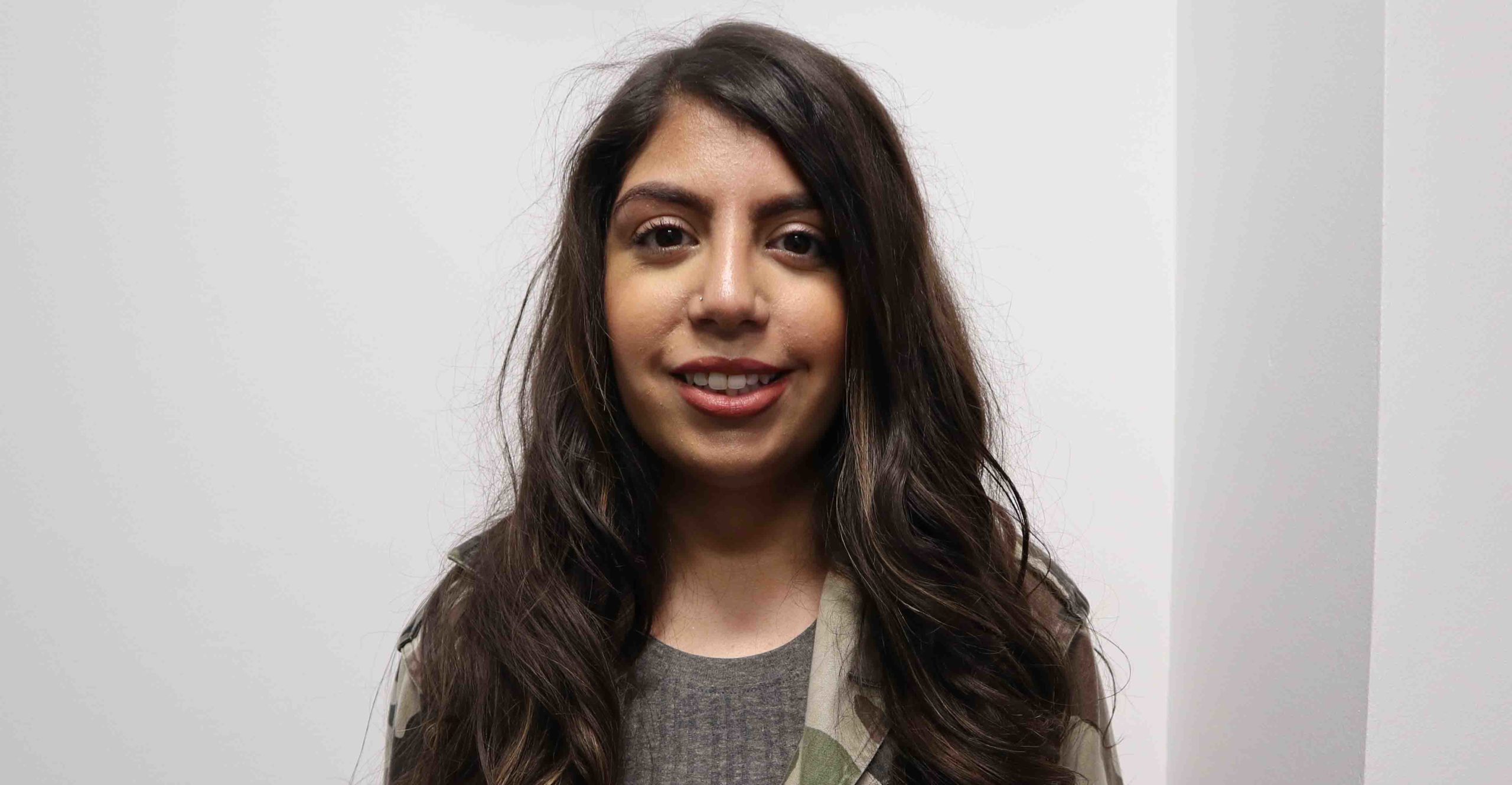
Fizah is a graduate from 2018 who completed a degree in chemistry, nonetheless has started a graduate career in commercial at Johnson Matthey, and has gone on to be appointed Strategy Execution Analyst.
Your tuition fee covers almost everything, but you may have additional study costs to consider, such as books, specialist equipment or field trips.
Full-time place, per year - £9,535
Year abroad fee - £1,430 (applies to year in China)
Full-time place, per year - £29,100
Year abroad fee - £14,550 (applies to year in China)
The tuition fees shown are correct for 2025/26 entry. Please note that the year abroad fee also applies to the year in China.
Tuition fees cover the cost of your teaching and assessment, operating facilities such as libraries, IT equipment, and access to academic and personal support. Learn more about paying for your studies.
Lab coats and safety goggles are provided free of charge.
Find out more about the additional study costs that may apply to this course.
We offer a range of scholarships and bursaries that could help pay your tuition and living expenses.
If you’re a UK student joining an undergraduate degree and have a household income below £35,000, you could be eligible for a Liverpool Bursary worth up to £2,000 for each year of undergraduate study.
Apply for an Asylum Seekers Scholarship and you could have your tuition fees paid in full and receive help with study costs. You’ll need to have applied for asylum in the UK, or be the dependant of an asylum seeker, and be joining an eligible undergraduate degree.
If you’ve spent 13 or more weeks in Local Authority care since age 14, you could be eligible for a bursary of £3,000 per year of study. You’ll need to be a UK student joining an eligible undergraduate degree and be aged 28 or above on 1 September in the year you start.
Are you a UK student with a Black African or Caribbean heritage and a household income of £25,000 or less? You could be eligible to apply for a Cowrie Foundation Scholarship worth up to £8,000 for each year of undergraduate study.
If you’re a UK student identified as estranged by Student Finance England (or the equivalent UK funding body), you could be eligible for a bursary of £1,000 for each year of undergraduate study.
Joining a School of Biosciences degree and have a household income of less than £25,000? If you’re a UK student, you could apply to receive £4,500 per year for three years of your undergraduate course.
Do you live in the Liverpool City Region with a household income of £25,000 or less? Did neither of your parents attend University? You could be eligible to apply for a Nolan Scholarship worth £5,000 per year for three years of undergraduate study.
Are you a UK student with a household income of £25,000 or less? If you’ve participated in an eligible outreach programme, you could be eligible to apply for a Rigby Enterprise Award worth £5,000 per year for three years of your undergraduate degree.
Are you a UK student with a household income of £25,000 or less? Did neither of your parents attend University? You could be eligible to apply for a ROLABOTIC Scholarship worth £4,500 for each year of your undergraduate degree.
Apply to receive tailored training support to enhance your sporting performance. Our athlete support package includes a range of benefits, from bespoke strength and conditioning training to physiotherapy sessions and one-to-one nutritional advice.
Joining a degree in the School of Electrical Engineering, Electronics and Computer Science? If you’re a UK student with household income below £25,000, you could be eligible to apply for £5,000 a year for three years of study. Two awards will be available per academic year.
If you’re a young adult and a registered carer in the UK, you might be eligible for a £1,000 bursary for each year of study. You’ll need to be aged 18-25 on 1 September in the year you start your undergraduate degree.
Use our handy chatbot for your Clearing enquiries.
Last updated 17 June 2025 / / Programme terms and conditions